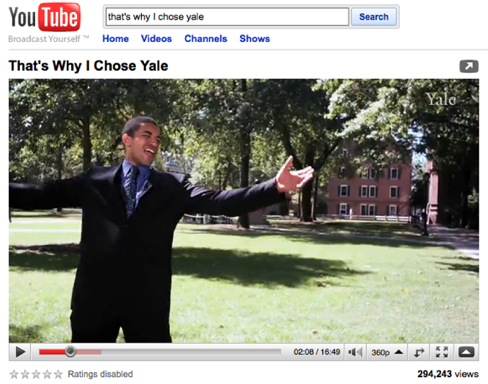
Screenshot Credit: YouTube
Zounds! After Noel’s heartwarming welcome-back posting, I feel reinvigorated and ready to begin posting again here at viz. I did rest my blogging muscles over the break, but managed to take a few notes for what will hopefully be more piquant posts on pop culture.
Recently, my friends have helpfully provided me with such a deluge of musical material that I don’t know what to do with it all. My friend Cate Blouke forwarded me the NPR story about HOPE: The Obama Musical, which delights me to no end—but I was a little more intrigued by a video my friend Meghan Andrews brought to my attention—a short-form musical YouTube video that doubles as a Yale advertisement called “That’s Why I Chose Yale.”
Recent comments
2 years 29 weeks ago
2 years 44 weeks ago
2 years 44 weeks ago
2 years 50 weeks ago
3 years 4 weeks ago
3 years 4 weeks ago
3 years 4 weeks ago
3 years 6 weeks ago
3 years 6 weeks ago
3 years 6 weeks ago